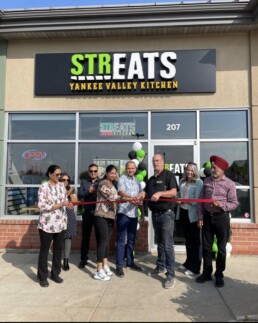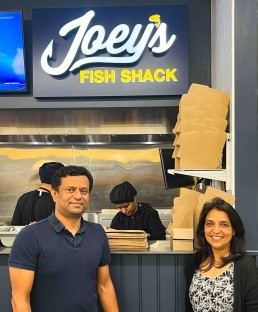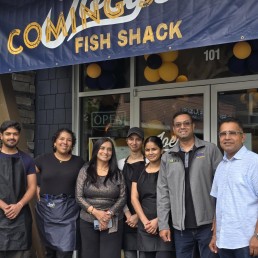In the dynamic landscape of the restaurant industry, the key to sustainable growth and success lies not just in attracting customers, but in retaining them. For restaurant owners and franchises like Joey’s Franchise Group, the strategy of building a comprehensive customer list offers long-term benefits that far outweigh the temporary spike in traffic generated by one-time promotions. Here’s why focusing on cultivating a robust customer database should be a priority for every restaurateur.
Sustainable Customer Relationships
Building a customer list is fundamentally about creating and nurturing relationships. Unlike one-time promotions that often attract deal-seekers who may not return, a customer list allows you to engage continuously with your patrons. This ongoing communication fosters loyalty, encourages repeat visits, and gradually builds a community around your restaurant. Regular updates, personalized offers, and tailored communication make customers feel valued, increasing the likelihood of them becoming regular patrons.
Increased Customer Lifetime Value
The concept of Customer Lifetime Value (CLV) is crucial in understanding why repeated engagement matters. CLV measures the total revenue a business can expect from a single customer over the course of their relationship. By focusing on building a customer list, you are investing in strategies that enhance the CLV, such as targeted email marketing, loyalty programs, and personalized experiences. In contrast, one-time promotions might boost sales temporarily but do little to enhance the CLV of those customers.
Cost-Effective Marketing
Acquiring a new customer is generally more expensive than retaining an existing one. When you have a robust customer list, you can reduce the reliance on costly advertising and marketing campaigns designed to attract new diners. Instead, you can leverage your list for more cost-effective email marketing campaigns that deliver offers directly to a pre-engaged audience that is more likely to respond positively. This not only cuts down on your marketing spend but also improves the return on investment (ROI) of your promotional activities.
Enhanced Ability to Forecast and Plan
A reliable customer list provides valuable data that can be analyzed to predict business trends, customer preferences, and potential revenue streams. This data-driven approach aids in better inventory management, staffing decisions, and promotional planning, ensuring that your restaurant operates efficiently and meets the expectations of your patrons. In contrast, one-time promotions provide only a temporary snapshot of customer interest, making it difficult to forecast long-term trends and plan accordingly.
Building Brand Advocates
Regular customers often become brand advocates, sharing their positive experiences with friends and family and on social media. This word-of-mouth marketing is incredibly valuable as it comes with a high level of trust and authenticity. By maintaining a customer list and engaging with these patrons regularly, you encourage them to share their positive experiences more broadly, effectively turning your loyal customers into a potent marketing force.
Tailored Promotions and Feedback Loop
With a robust customer list, you can segment your audience and tailor promotions to meet specific needs and preferences, which is far more effective than generic, one-time promotions. This customization increases engagement and satisfaction. Additionally, regular interaction with your customer base provides a channel for feedback and suggestions, enabling you to refine your offerings and improve the dining experience continually.
Conclusion
While one-time promotions are not without merit, particularly for quick boosts or to highlight a new offering, the sustained focus should undoubtedly be on building a comprehensive customer list. For franchises under Joey’s Franchise Group, leveraging such a strategy not only ensures a steady flow of repeat customers but also builds a stronger, more resilient brand in the competitive restaurant market. By investing in relationships rather than transactions, restaurant owners can secure a thriving business with a loyal customer base that supports growth and innovation over the long term.
Streats Harvey Kitchen is Now Open in Kelowna, BC!
16 December 2024
Joey’s Fish Shack Wallaceburg: Opening Soon!
6 November 2024
Opening Soon: Streats Kelowna Kitchen
30 October 2024
New Location Opening Soon: Streats Airdrie Kitchen
30 October 2024
Restaurant Marketing Trends for 2024: Boosting Business
13 August 2024









